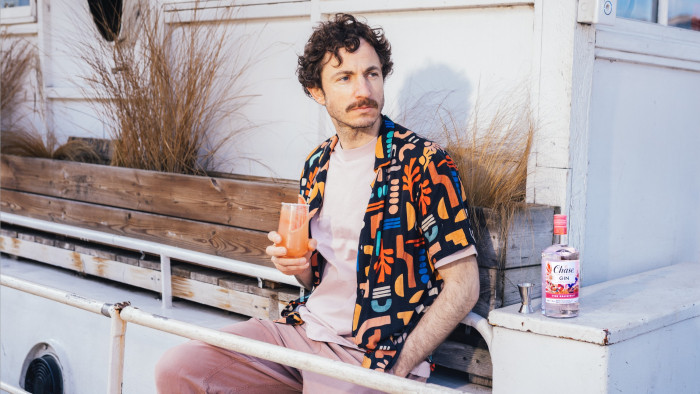Why trying to police how the homeless spend their money is patronising and wrong
There's no 'right' or 'wrong' way to donate to the homeless - just make sure you do it


As we find ourselves rushing towards the warmth of the indoors as winter draws near, the homeless people of London on high streets, outside train stations and in supermarket foyers become harder to ignore. It’s freezing, wet and bleak enough just enduring the elements on your commute, let alone for the entire season. Many of us want to help these most vulnerable members of society, but how exactly can we be our most useful?
Should we give money directly? Or buy them food and essentials? Or donate to a cause with dedicated resource to tackling the problem? A widely shared article on The Atlantic claimed: “If we drop change in a beggar’s hand without donating to a charity, we’re acting to relieve our guilt rather than underlying crisis of poverty.”
Many charities and councils also advise against giving money to the homeless. The Royal Borough of Chelsea & Kensington claims that “giving to rough sleepers contributes to their early death”. Nottingham City Council came under fire last year for their #givesmart campaign that saw adverts plastered across the city that demonised the homeless, asking people not to “give to fraud”. Another poster from the campaign showed a perceived beggar smoking a joint and was captioned “watch your money go up in smoke”. Homelessness charity Thames Reach claim that 80% of beggars don’t need money for accommodation and are in fact feeding a hard drug habit, citing a study that found four in five of those asking for money on the streets were taking Class A drugs.
That donated money will go straight into the hands of drug dealers, potentially exacerbating serious problems with addiction, is a common concern. The average life expectancy of a homeless person in the UK at the moment is estimated at 47. Many struggle with the idea of giving money directly to the homeless, instead preferring to buy a sandwich or a hot drink to ensure that any help they give is not being spent on drugs or alcohol.

(CRACK+CIDER)
Motivated by this, Scarlett Montanaro and Charley Cramer set up their charity CRACK + CIDER. The name itself came after the pair spoke with a homeless man who informed them: “People don’t give me money because they think I’ll spend it on crack and cider.” Clearly, it’s a stereotype they believe the homeless population are, themselves, acutely aware of.
Rather than giving money to rough sleepers, CRACK + CIDER customers can buy useful items on the website – a warm jacket, a heat pack, gloves and so on– which are then donated and distributed among the homeless. “They aren’t people’s old cast-offs, they’re brand new gifts paid for by a perfect stranger. It’s great for the recipient to know someone cares.”
The charity has been hugely successful, expanding their ‘packs’ to include a ‘dog pack’ and a ‘period pack’, both areas which are often critically overlooked. Many shelters refuse animals, and the rough sleepers for whom a dog is their main companion often prefer to sleep outdoors in order to keep them than to make use of a bed.
In the long term, they hope to continue to tackle the “guilt and awkwardness people feel when they’re asked for spare change” because their service enables donors to “feel closer to the cause by being given a choice on what their money will be spent on. If they pay for a jacket, they know a jacket will be bought and delivered to a homeless person.”

(CRACK+CIDER)
Their business name and methods, however, have not been without their critics. Although a grabby title that will have certainly raised awareness, it’s fair to say CRACK + CIDER still reinforces negative stereotypes about the homeless in terms of our own behaviour.
When reaching out to more established traditional charities for comment on C+C, many were loathe to undermine the work of another organisation seeking to help the homeless, although several people I spoke to seemed skeptical about the approach and name. A source at a major homeless charity, who wished to remain anonymous, claimed that some of the simplified and short-sighted ideas they are using for publicity are perhaps not so helpful: “From looking at the website, I can’t see any attempt to explore the many complex issues faced by homeless people - they just focus on substance misuse and alcohol, using it as a reason not to give money directly to people who beg. I would point out there are many other things that could lead to homelessness and not all of those who are homeless have issues with drugs and alcohol.”
“It’s something we need to talk about openly in order to move on from it”, Montanaro and Cramer argue in their defence. “If we don’t face it head on or go some way to turning it into a positive, it will just continue to be ignored like it has been for so many years.”
They believe that they owe their success, in part, to the polarising name: “We made the decision to go with the name because we knew it would have most cut through and therefore mean we could have the greatest impact in our community. We could easily have called ourselves something innocuous that nobody thought twice about but we firmly believe that would have been a wasted opportunity.
“This name says and does so much. It not only makes people question their own deep-rooted feelings about rough sleepers, but forces a debate. If you don’t like the name, good! If it offends you, even better! It’s probably because deep down it echoes a home truth. That’s probably why people have been so generous in their donations.”

(Pixabay)
CRACK+CIDER’s name and mission does raise an awkward question: why do we feel entitled to decide what the homeless spend their money on? Homeless people are not, for the most part, children, so why do we treat them so patronisingly, and otherly? So what if they spend it on drink or drugs?
Michael, a 56-year-old rough sleeper based mostly around the Soho area of London took issue with the charity’s angle. Although he also agreed that what they were doing could be helpful for those on the street throughout the cold winter months, he thought that the approach was too simplistic. Michael has been homeless for more than 10 years, and argues that you can’t tackle homelessness or addiction on such a surface level: “A lot of the alcoholics, there’s a reason for them being alcoholics. I was out here for 10 years and I never drank, but about three years ago, I started drinking. And it helps - it made it easier, helped me sleep easier.
“You have homeless units around here and they’re all social workers that went to college, know nothing about homelessness and poverty, but think they know what they’re doing. And they try and get [the homeless] off of the drugs, but they’re doing it the wrong way round. You gotta get what’s in their heads outta their heads first. Because the minute you take the drugs away it’s back in their heads - and until you get that problem out, they will always turn back to drugs.”
He tells me about his own girlfriend, a similarly homeless 24-year-old sex worker, who “sells herself for drugs”. Even though he hates what she does, he tells me that, “At the end of the day, I can’t blame her. She needs to get things out of her head that happened to her - her stepfather raped her in her own bedroom at eight years old. What chance did that kid ever stand?” He then shows me £150 in cash someone has given him this morning: “I looked at him and said ‘you’ve just got my little girl and me out of Soho for 14 days’ - I’m gonna use that to buy her heroin, and that means she won’t have to sell herself for 14 days, and that to me is priceless.”

(Pixabay)
For some, the very fact that the money given to Michael will be spent on heroin might justify and vindicate schemes such as CRACK + CIDER, but it’s a perhaps uncomfortable fact that, in the grand scheme of things, Michael and his girlfriend need more than a warm jacket or a pair of gloves. If you can’t understand why someone would prefer a beer jacket over a Tesco meal deal and a real jacket, then you probably haven’t thought on the realities of sleeping rough, or the circumstances that have led many to feeding an addiction on a street corner.
Besides, so what if those sleeping rough may take drugs if only to help them forget about their situation for a few hours? Escapism through drink and drugs is a phenomenon embedded at the heart of our culture. The same people that feel uncomfortable giving to the homeless out of a concern for how it will be spent are often just as likely to reach for a bottle of wine after a tough day at the office. Is it so hard to imagine that if you lived on a cold city street you’d want to be intoxicated?
For real useful change and help, Michael tells me that people need to understand that, “There’s no such thing as ‘the homeless’ - we’re individuals, like the rest of the world, and you have to find out what each individual person wants and needs. Too many charities seek to treat the homeless as a lump which means they don’t have a clue how to actually help anyone.”
Maybe this is the key point with regards to help for the homeless: a uniform approach to myriad needs doesn’t tend to work. Charities conducting more intensive and individual-based work on the ground seem to be getting the most results.
Set up in 2015 with “social good in mind”, the Peckham-based coffee roasting company and café Old Spike Roastery is a small business and social enterprise committed to this arguably more successful ‘third way’ approach to homelessness. Aside from creating some of the best coffee in London, the café provides training, jobs and housing support for people experiencing homelessness across the UK. On a basic level, Old Spike provides on-site barista training which gives staff the confidence and skills needed to work in the Peckham café. Crucially however, the help they offer is tailor-made to the individual.
Speaking to Richard, one of the co-founders, he explains: “What we have realised is that there isn’t one method that can be applied to all people, so we try and customise it where possible - the training and support with housing that we offer depends entirely on each individual that we are trying to help.”
He uses one of their first employees as an example: a Romanian lady who struggled with English when she first began working for the cafe, so they arranged a tutor, and so she is now better able to communicate with customers. For other employees, support has been provided through the company taking on part of the risk associated with securing permanent residence.
In terms of the future and the enterprise’s overall goals, Richard says that it is, “To offer people real life experience and training - whether that is in our roastery bagging coffee, working at one of our cafés as a barista or delivering coffee to our wholesale clients. As the business grows, more employment opportunities arise so our focus this year is very much on scaling the business and being able to provide as much help as possible for the homeless community.”
Both C+C and Old Spike prove that attempting to alleviate homelessness through charitable donations need not involve - as Montanaro and Cramer put it - an “invisible £2 a month disappearing from your account that you can’t see the effect of”. Donating need not be a completely impersonal act, and you can be active within a charity without necessarily working for them.

(Rex)
Many donors speak of a desire that their money will be spent as effectively on the homeless as possible. Putting aside the problematic notion that charity should be given in accordance with the principles of the market, there is nothing to say that giving someone change is necessarily ineffective. Not giving someone money is not going to help fight their addiction.
When I told a friend who works for a separate charity about CRACK+CIDER, she told me that, based on her own work in the sector, if someone wants crack they will find a way to get it – if it comes down to it they’ll sell their coat. If - and this is a crucial ‘if’ - a homeless person is begging to feed an addiction, they will keep begging until they have enough money to pick up. Although you might feel that by giving money you are helping to feed an addiction, the fact is that on this micro level this is not necessarily the wrong thing to do. Helping someone deal with the immediate misery of their situation is not unhelpful, it’s human.
Essentially, it boils down to the idea of only wanting to help if you get to choose the terms of the help. Real altruism arguably comes from a place where you see the person whom you are helping as fundamentally equal.
The mindset of those who are wary of giving homeless people money but are happy to buy them food or pre-purchased goods is similar to that held by those who begrudge people on benefits spending their money on supermarket tinnies and cigarettes. Deciding what those poorer than you spend the money they are given on is not only a slippery slope, but also a dehumanising one.
Policies that float the introduction of food stamps instead of cash benefits for the poor or gloves instead of cash donations for the homeless are patronising at heart. The poor are not stupid, unable to budget or inherent alcoholics. Homelessness is a looming possibility for a huge swathe of the population - with research repeatedly showing that the average person is only one or two paychecks away from homelessness.
Giving money to the homeless might not be a long-term solution to the problem of homelessness, but in a time where government funding for the homeless and vulnerable is being slashed and the world feels like it’s on fire, dropping a few coins into someone’s outstretched hand is a radical act.
Helping someone doesn’t need to come with so many strings attached. But there is nothing to say that these actions are mutually exclusive – you can give money to someone on the street and you can also subscribe to a charity that helps rough sleepers to get back on their feet in the long term.
And if you are so inclined, you can buy a jacket, too. Just make sure you do something.








